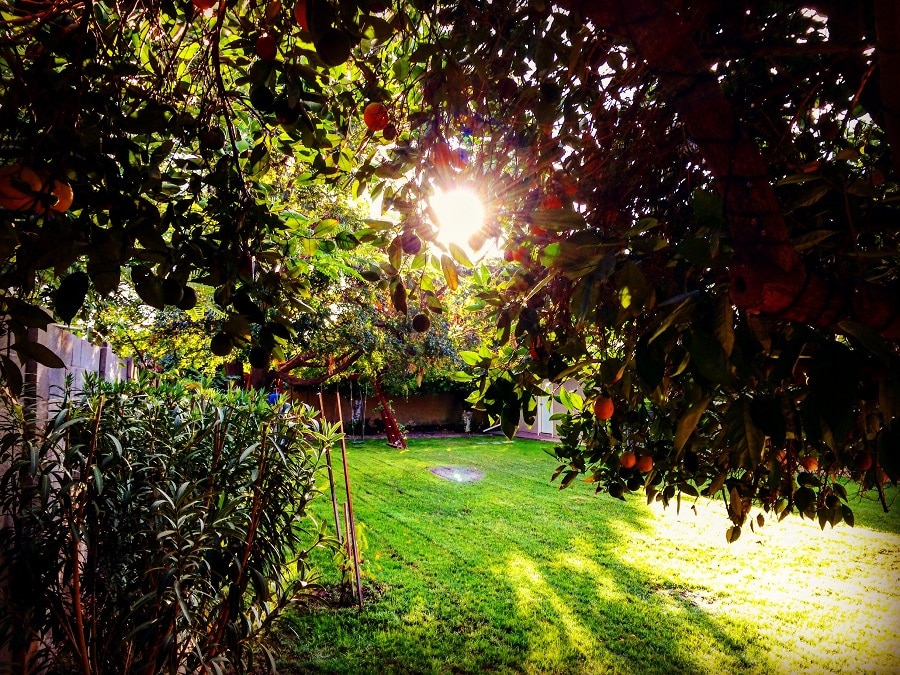Embarking on outdoor adventures brings the thrill of exploring the wild, but it also comes with unpredictable challenges. Preparedness is crucial for anyone venturing into nature, whether for a day hike or a week-long backpacking trip. This guide delves into practical survival hacks that are essential for facing unforeseen situations. These hacks cover everything from finding water and building shelters to navigating unfamiliar terrain, all aimed at enhancing safety and self-reliance in the wilderness.
Contents
Essential Survival Gear
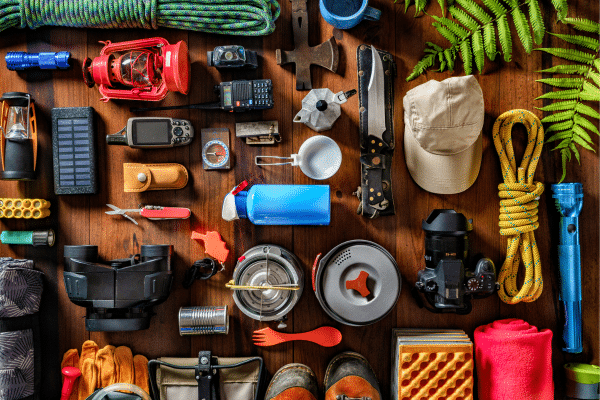
The foundation of any successful outdoor adventure lies in packing the right gear. A basic survival kit should contain a sharp knife, waterproof matches, a whistle for signaling, a compass, and a sturdy rope. These items are chosen for their versatility in a wide range of situations. For instance, a knife is not only for preparing food but can also be used for making tools, while a whistle is the most effective way to signal for help without exhausting oneself.
Carrying multipurpose tools significantly reduces the load and ensures that one is prepared for various scenarios. For example, a multi-tool with pliers, a screwdriver, and a can opener saves space and weight compared to carrying each item separately. Additionally, integrating items like a flashlight with a built-in radio or a water bottle with a filter can provide more functionality without compromising on the essentials. The goal is to be resourceful, selecting items that serve multiple purposes to tackle challenges that may arise.
Finding And Purifying Water
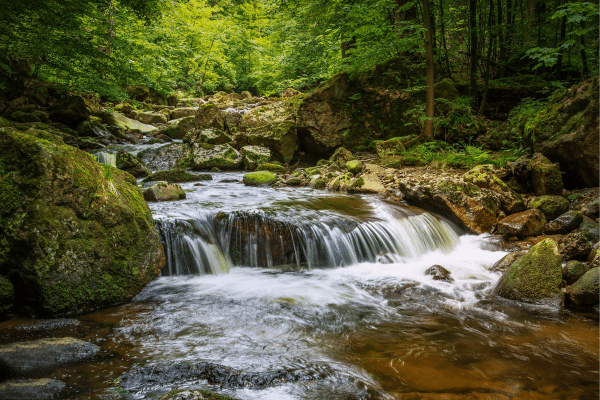
Water is the lifeline in any survival situation, making the ability to locate and purify it a critical skill. Natural sources such as streams, lakes, and rainwater can provide the necessary hydration, but knowing how to collect and purify water is essential. Techniques like using clothing to absorb dew or constructing a solar still can be lifesaving. Additionally, areas with lush vegetation or where animals are seen drinking are good indicators of nearby water sources.
Once a water source is found, purification is the next critical step to avoid waterborne diseases. Boiling is the most reliable method, but when this isn’t possible, chemical purification tablets or solar disinfection using clear plastic bottles can be effective alternatives. These methods ensure that the water consumed is safe, preventing illness that can exacerbate survival challenges. Understanding and employing these techniques can make the difference between thriving and merely surviving.
Building A Shelter
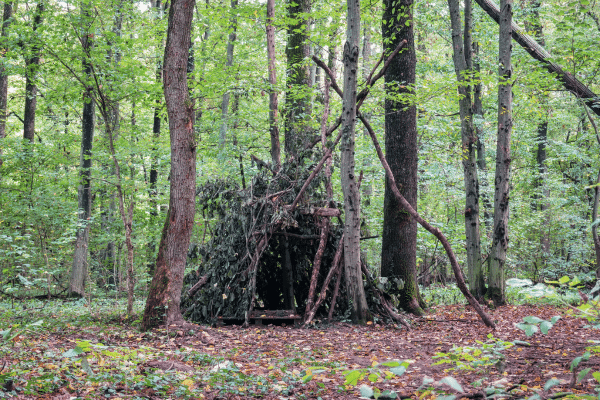
Securing shelter is paramount for protection against the elements and maintaining body temperature. The ideal shelter location is on stable ground away from potential hazards like falling branches or flash floods. Utilizing natural landscapes, such as rock overhangs or dense forests, can offer initial structures to build upon. The goal is to create a shelter that is insulated, waterproof, and wind-resistant using available materials.
Constructing a shelter can be as simple as using a tarp or emergency blanket strung between trees or as complex as building a lean-to from branches and leaves. The key is to ensure that the shelter is small enough to retain body heat but large enough to accommodate movement and sleeping. Skills in tying knots and using natural materials creatively can significantly enhance the effectiveness of the shelter. This not only provides physical protection but also a psychological boost by creating a sense of security and home in the wilderness.
Starting A Fire Without Matches
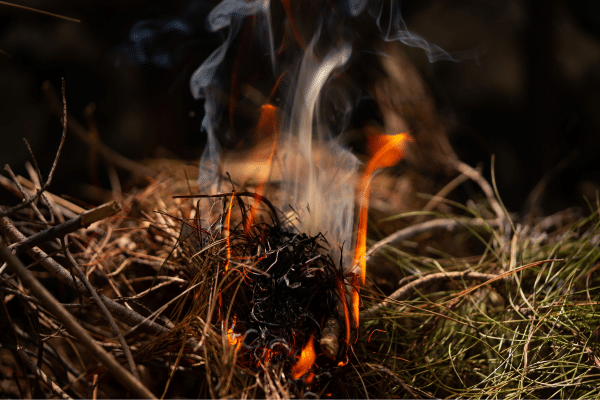
The ability to start a fire is essential for warmth, safety, and cooking in the wilderness. Traditional methods such as flint and steel, a magnifying glass, or even a battery with steel wool offer reliable alternatives to matches. These methods require patience and practice but can be effective in igniting a spark. Collecting dry tinder, such as leaves, pine needles, or small twigs, is crucial for nurturing the initial flame into a sustainable fire.
Friction-based techniques, like the bow drill or hand drill, are ancient methods that use the heat generated by rubbing wood to start a fire. These techniques demand not only specific materials but also a significant amount of physical effort and skill. The creation of a friction fire involves a spindle, a fireboard, and a lot of determination. Despite the challenge, mastering this skill ensures that one can produce fire in any condition, providing a profound sense of independence and capability in the wild.
Foraging For Food
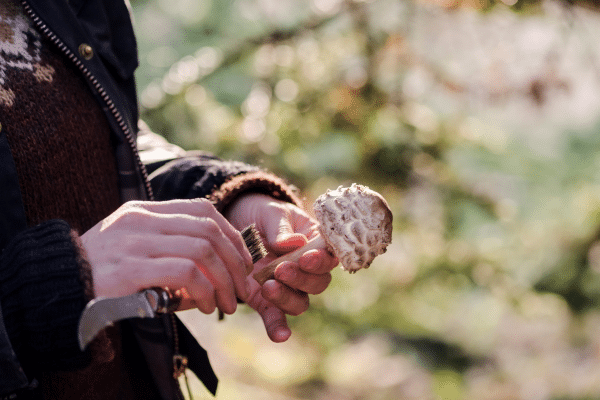
Finding food in the wilderness relies on the ability to identify edible plants and insects. Knowledge of local flora and fauna is invaluable, allowing one to distinguish between nourishing and potentially harmful sources. Books, apps, and courses on foraging can equip adventurers with the necessary skills. It’s crucial to follow the universal edibility test when in doubt, which involves a step-by-step process to determine if an unknown plant is safe to consume.
Sustainability and respect for nature guide ethical foraging. This means taking only what is needed and leaving enough behind for wildlife and future growth. Insects, often overlooked, are a reliable protein source and are commonly found. From grasshoppers to ants, many insects are edible and can be found under logs, in bark, or among leaves. Understanding these survival food sources is not just about sustenance; it fosters a deeper connection with the environment.

Navigating through unfamiliar territory is a challenge that requires basic orientation skills. The sun, stars, and natural landmarks serve as guides for determining direction. For instance, the sun rises in the east and sets in the west, providing a rudimentary compass during daylight hours. At night, constellations like the North Star in the Northern Hemisphere can aid in finding one’s bearings.
Maps and compasses are indispensable tools for precise navigation. Learning to read a topographic map and understanding how to use a compass in conjunction with it can make a significant difference in staying on course. This involves knowing how to orient the map to match the surrounding terrain and using the compass to follow a bearing. Such skills are vital in avoiding disorientation and efficiently moving toward safety or a destination.
First Aid And Handling Emergencies
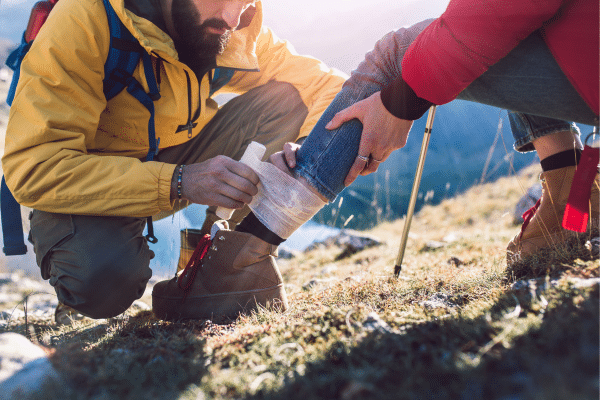
A basic understanding of first aid is crucial for addressing injuries and ailments in the wilderness. A well-prepared first aid kit should include items to treat cuts, burns, bites, and other common injuries. Knowledge of how to use these supplies effectively can prevent minor injuries from becoming serious. Techniques for splinting broken limbs, treating hypothermia, and recognizing signs of heatstroke can save lives.
In emergency situations, knowing how to signal for help is as important as self-care. Visual signals, such as mirrors or brightly colored clothing, can attract rescuers’ attention. Smoke signals or creating large symbols on the ground visible from the air are other effective methods. These strategies ensure that even if one is incapacitated, there are means to alert others to their location and need for assistance.
The Bottom Line
Survival in the wilderness hinges on preparedness, knowledge, and adaptability. These survival hacks offer a foundation for facing the unpredictable with confidence and resourcefulness. Whether it’s building a shelter, finding water, or navigating unfamiliar terrains, the essence of these skills lies in their practical application. Continuous learning and practice are essential, as they turn theoretical knowledge into instinctual survival abilities. Ultimately, the greatest tool at one’s disposal is a calm and determined mind, ready to apply these hacks for a safe and rewarding outdoor experience.


